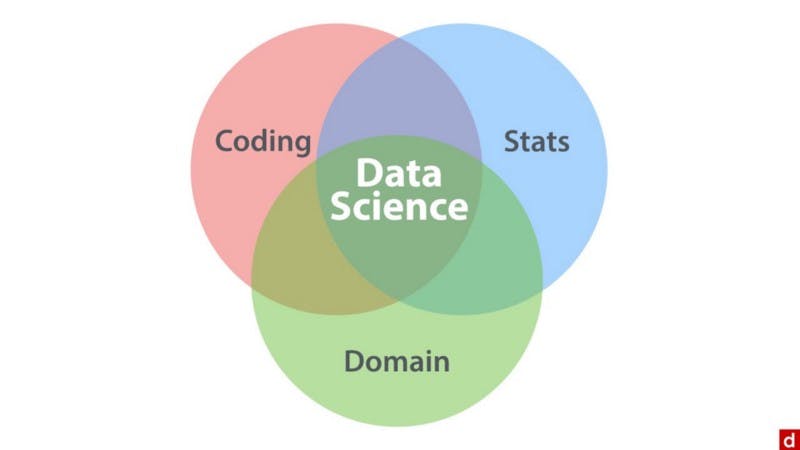Why you shouldn’t join the AI industry in 2021
Interested to get into AI? Read this first.
Interested to get into AI? Read this first.
Disclaimer: These opinions are mine and mine only. You may choose to agree or disagree with them. And yes, some examples are hyperboles, please take them with a pinch of salt. :)
Why you shouldn’t join AI
You want to get rich.
Let’s get the elephant out of the room. As the words “Artificial Intelligence” and “Machine Learning” get plastered all over the media with governments, public agencies and even large corporates advocating for and/or incorporating AI into their business one way or another, it’s hard not to imagine that the industry is flushed with hot money. Let’s be honest — it is.
Want to raise seed money for your start-up? Throw in the acronyms “AI” into your business proposition and you’ll have investors lining up at your doorstep.
Want to ask for additional budget for your department at an MNC? Throw in the words “AI”, “Data Analytics” or “Automation” and you’re bound to get that fat budget rolling in coming quarter.
You want to get rich…through the stock market.
With a banking and finance background, I’ve encountered a handful of friends and acquaintances who view AI as their “get rich quick” or “rags to riches” strategy. This typically takes the form of a reinforcement learning agent that can autonomously make informed trade decisions or notify them of buy or sell signals.
Truth is — these types of agents may or may not exist today. Even if they did, you’d probably not know about it because people don’t publish models that fulfil their capitalist or materialistic needs.
AI is a unique field because it crosses different domains and industries. In some cases it replaces, but in most cases it supplements. It is the fuel to many industries that need it, especially ones that aren’t capitalist-driven. Take healthcare for example — the business of healthcare revolves around people. The use of AI in healthcare is so much more than obtaining the best performing model optimised on a certain metric. The stakeholders may involve big Pharma, doctors, computer scientists and researchers, but the most important stakeholder here is in fact the patient – patients with real healthcare vulnerabilities.
As with most industries that aren’t capitalist-driven, these industries (and ultimately humanity) truly benefit when people with great humility and altruistic motives contribute and grow the industry.
I get that you’re motivated by money, but coming into the industry with that motivation is simply a huge turn-off for engineers. Quit saturating the industry with false positives. Thank you, next.
You want to be in on the latest hype.
“Everyone is learning how to code. I want to do it too.” — every FOMO creature out there.
If that sounds like you, I’d suggest you to think twice about moving into AI. Coming from a non-computer science and non-technical background, it took me two years of studying after-work hours to get a foothold into the field of AI (read more about it here). Even so, that was only the beginning of my learning journey.
My point is — it is easy to be hyped up by the media, but it is not easy to hype yourself up everyday if you lack that passion and motivation.
Secondly, AI is not just about self-driving cars and defeating humans at games like DoTA 2, StarCraft or Go with super cool reinforcement learning agents (yes, I admit they’re dope). Building real-life AI solutions are often a lot less cool than that. From your day-to-day recommender systems that we simply gleam past, to our phone’s facial recognition feature that we so often take for granted, to the house price prediction (linear regression) model that many don’t even consider AI.
The reality is that building AI solutions often start from the ground up — involving large engineering teams to build a solid data engineering pipeline, retraining loop, model monitoring processes and more. The media only portrays the sexiest and coolest part of the industry. A state-of-the-art reinforcement learning agent often makes the headlines, but makes no impact.
So, ask yourself — are you an AI hypeman? If so, thank you, next.
You don’t want to be replaced at your job.
As COVID-19 accelerates the rise of the digital economy, jobs are inadvertently displaced (not replaced) for both the physical and cognitive-laboured type of jobs (read more about it here). Across these different industries and types of jobs, the fear of being obsolete is real, as is the biological theory of “survival of the fittest”.
Fear can be a great motivator, but not a sufficient one. Once you feel like you’ve learnt enough, you may get comfortable and the fear of being redundant and obsolete would have dissipated. Don’t get me wrong — coding and learning data science is fun, but there is a stark difference between what you should keep as hobbies versus your career.

Since I have started my pursuit of joining the field several years ago, there has never been a day where I stopped learning. AI is a field of continuous learning as it unintentionally sits at the crossroads of software engineering, statistics and domain expertise. As a result, the vast amount of knowledge that one needs to have in order to join and excel in this field is tremendous, let alone keep up with the ever-changing technologies (software and hardware). One simply cannot be willing to let go of that willingness to learn.
Ask yourself — Was it fear that drove your interest in AI? If so, thank you, next.
Closing Remarks
If you’ve made this far and have not identified with any of the above characteristics — congratulations! Let’s work to propel the AI industry forward.
To all you AI folks out there:
Stay hungry. Stay humble.
Thank you for reading!
